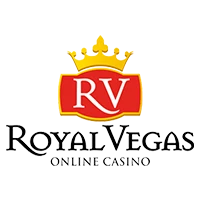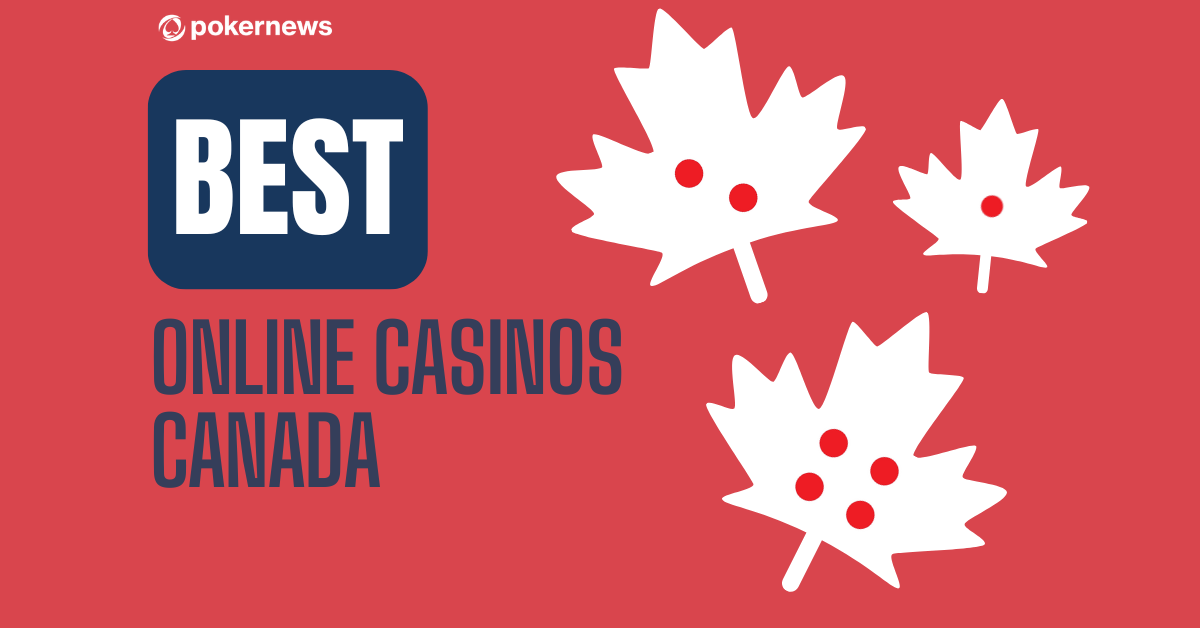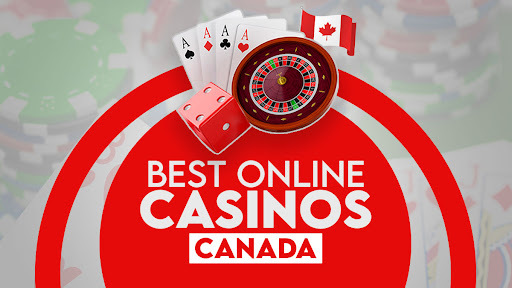🎰 Best Casino Canada – Debunking Myths and Finding Top Canadian Online Casinos (2025)
Online gambling has dramatically evolved over recent years, bringing considerable benefits and improvements to the Canadian casino gaming experience. Despite this progression, common misconceptions continue to linger among Canadian players—concerns about legitimacy, fairness, and secure payments persist.
| Casino Name | Bonus | Act |
|---|---|---|
 Royal Vegas Casino
Royal Vegas Casino
|
Enjoy a C$1200 Deposit Bonus! | Go for It |
 SpinsBro
SpinsBro
|
520% up to C$3050 + 1000 FS! | Go for It |
 TonyBet Casino
TonyBet Casino
|
100% up to $1000 + 100 FS! | Go for It |
 OnlyWin
OnlyWin
|
$3000 CA + 210 FS! | Go for It |
 Roby Casino
Roby Casino
|
150% + 2200 CAD + 200 FS! | Go for It |
In reality, Canada's regulatory shifts and technological advancements have significantly improved transparency, fairness, and security, creating a safer and more enjoyable gambling environment.
This article is dedicated to debunking prevalent myths surrounding online gambling in Canada. Using industry insights and clear, factual analysis, we'll recommend trustworthy, legitimate, and secure Canadian online casinos for 2025, providing you informed decisions for your gaming experience.

🚫 Myth 1: All Online Casinos Operating in Canada Are Equally Reliable
How to Choose the Right Online Casino in Canada
Not all casinos are created equal; choosing the best one requires carefully considering various reliability markers. Evaluate each casino based on factors like licensing, independent fairness audits (e.g., eCOGRA), player reviews, and payment reputation.
Checking Operating Licenses and Certifications
Legitimate online casinos prominently display certifications from reputable bodies such as Malta Gaming Authority (MGA) and the UK Gambling Commission (UKGC). Certifications and seals such as eCOGRA indicate a transparent, fair, and responsible environment.
Reading Player Reviews vs Paid Promotions
While affiliate reviews can be informative, prioritize genuine player feedback through forums and independent review sites, offering unbiased insights into casino reliability and player satisfaction.

💰 Myth 2: Casino Bonuses Are Always "Free Money"
Types of Online Casino Bonuses Explained
- Welcome Bonuses: Bonuses provided upon registration, generally percentage-match deposit offers, attractive yet subject to conditions.
- No Deposit Bonuses: Free play offers not requiring initial deposits but typically have highest wagering and payout restrictions.
- Cashback Bonuses: Refunds of percent losses over a set period to mitigate risk, tied closely to loyalty programs.
- Free Spins: Complimentary spins awarded for specific slots, marketable but often subject to wagering terms.
- Reload Bonuses: Rewards for additional deposits, maintaining player retention yet also entailing wagering requirements.
The Truth Behind Wagering Requirements
Casino bonuses have stringent wagering requirements—often a multiplier of your bonus amount—that must be achieved to withdraw. Terms typically limit eligible games, maximum withdrawal values, and validity periods.
Strategies to Evaluate Bonus Offers and Terms
Closely read terms, estimating your likely spend and gameplay pace. Consider bonus value realistically, factoring in playthrough requirements and expiry conditions.
📱 Myth 3: Mobile Gaming Experience Is Poorer Compared to Desktop
Mobile Gaming: Apps vs Browser Comparison
| Feature | Mobile App | Browser (HTML5) |
|---|---|---|
| Load Speed | Faster | Moderate |
| Convenience | High (installed) | Browser dependent |
| Game Range | Slightly limited | Comprehensive |
| Updates | Manual | Automatic |
Key Considerations for a Seamless Mobile Casino Experience
Reliable internet, fast loading speed, intuitive interfaces, availability of live support within the app itself, and smooth integrations for payments and withdrawals are essential.
How Leading Casinos Optimize Mobile App and Browser Gameplay
Top operators employ HTML5 technology, creating native-like performance through browsers and dedicated apps optimized for speed, responsiveness, and streamlined navigation reflective of desktop experiences.

📖 Myth 4: Online Gambling in Canada Operates in a Legal Grey-Area
Online Gambling Legality and Safety in Canada Explained
Canada's laws clearly permit online gambling regulated provincially: provinces independently control licensing, compliance, and oversight for operators. The Criminal Code does not prohibit Canadians from gambling online with overseas-licensed casinos.
Understanding Provincial Jurisdictions and Regulatory Bodies
Ontario's AGCO, Quebec's Loto-Québec, and BC's BCLC are examples of provincial authorities governing casino activities. Casinos licensed within these jurisdictions adhere strictly to stringent player protection standards.
Identifying Legal Red Flags in Online Casinos
Avoid casinos lacking licensing disclosure, jurisdictional information, transparent RNG (Random Number Generator) audits, responsible gambling practices, and SSL encryption technologies.
🎲 Myth 5: Casino Games Are Rigged in Favor of the House
Popular Casino Games and Features Demystified
- Slots: RNG-based, high variety visuals
- Blackjack: Skill and chance balanced gameplay
- Roulette: Randomness auditable via RNG
- Baccarat: Transparent odds with clear rules
- Poker: Skillful decision-based gameplay
- Craps: Transparent dice algorithms for fairness
- Keno: Instant-win RNG-determined results
- Scratch Cards: Quick RNG-based reveal mechanics
- Live Dealer: Real-time authentic gameplay
- Progressive Jackpots: High-payout transparency and visibility
RNG and Fairness Audits – What Do They Mean for Canadian Players?
Modern casinos openly display independent audits of their RNG technology, demonstrating non-biased, unpredictable outcomes—eCOGRA or TST regularly audit these mechanisms, ensuring player confidence.
How to Find Casinos with the Best Payout Rates (RTP)
Publicized RTP ratios (Return to Player), verified independently, offer strong indicators. Higher RTP statistics ensure fair returns, previously audited by respected entities like eCOGRA.
💳 Myth 6: It's Risky to Deposit and Withdraw Funds Online
Securing Your Transactions – Reliable Payment Methods Explained
Trustworthy Canadian online casinos offer secure, encrypted payment methods:
- Credit cards (Visa, MasterCard)
- Bank transfers & Interac
- eWallets (Skrill, Neteller, PayPal)
- Cryptocurrencies (BTC, ETH)
Transaction Speeds and Fees: What Canadian Players Need to Know
Payment methods vary in processing speed (eWallets instant; bank transfers slower) and fee structure (cryptocurrencies typically free or minimal fees versus bank transfers).
Cryptocurrency Casinos vs Traditional Payment Methods: Pros and Cons
Cryptocurrencies provide anonymity, security, low or no fees, and swift transfers but lack widespread acceptance. Traditional methods offer familiarity, insurance protection, and regulatory assurance.

🛡️ Myth 7: Responsible Gambling Features Are Just Marketing Tactics
Why Responsible Gambling Practices Are Essential for Canadian Players
Canada's online casinos integrate responsible gambling as proactive player protection including self-limits, self-exclusion, reality checks, and active support channels.
Tools and Features Offered by the Best Canadian Casinos to Promote Safe Gambling
Effective tools include deposit limits, loss and wager caps, session limiters, cool-off periods, and specialized proactive gambling-prevention customer support.
❓ Frequently Asked Questions
Safest casinos are fully licensed by provincial bodies or reputable offshore regulators (UKGC, MGA), audited regularly by eCOGRA, using secure payment platforms.
Verify Canadian jurisdiction licensing, international certifications, RNG transparency reports, secure payment facilities, and unbiased player reviews.
Bonuses are beneficial if wagering terms align realistically with player preferences and gameplay expectations, with transparent, reasonable requirements.
Blackjack, baccarat, and video poker games generally offer the highest RTP (95%-98%), giving players better opportunities to win.
Yes—online gambling is legal nationwide; however, regulated casino licenses vary by province, necessitating provincial-specific compliance and adherence.